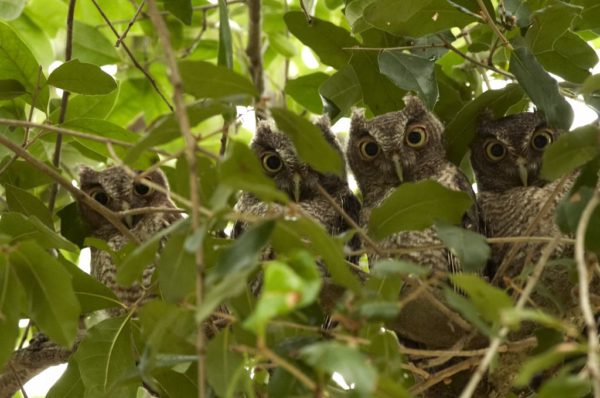
Ever had a trivia question about what a group of owls is called? I am a consumer of trivia tid-bits and miscellany, so terms like an exhalation of larks and a parliament of owls tickles me. I have lately come to find that collective nouns, at least as they refer to animals, are actually rather contentious. This Audubon post: No, It’s Not Actually a Murder of Crows sums up a few arguments against collective nouns, mainly that the terms are useless, are nothing but whimsy, and are not used by scientists. The article also mentions the origination of many of the collective nouns that often make it onto trivia lists.
The tradition of using “terms of venery” or “nouns of assembly”, or collective nouns that are specific to certain kinds of animals, stems from an English hunting tradition of the Late Middle Ages (Wikipedia). Many of them were originally captured in the 1486 Book of Saint Albans, which included information of interest to ‘gentlemen’ of the time. The Wikipedia’s list of animal names gathers a bunch of historic and more modern collective nouns together for easy perusal. The Merriam-Webster article, A Drudge of Lexicographers Presents: Collective Nouns, goes further to discuss collective nouns covered in the Book of Saint Albans that referred to people of a certain profession, like a melody of harpers.
In our world, it would be a bit silly to assert that using the correct collective noun is the only correct speech. From a writer’s point a view, however, the whimsy carried through a historic collective noun could do a lot to liven up prose and poetry.
